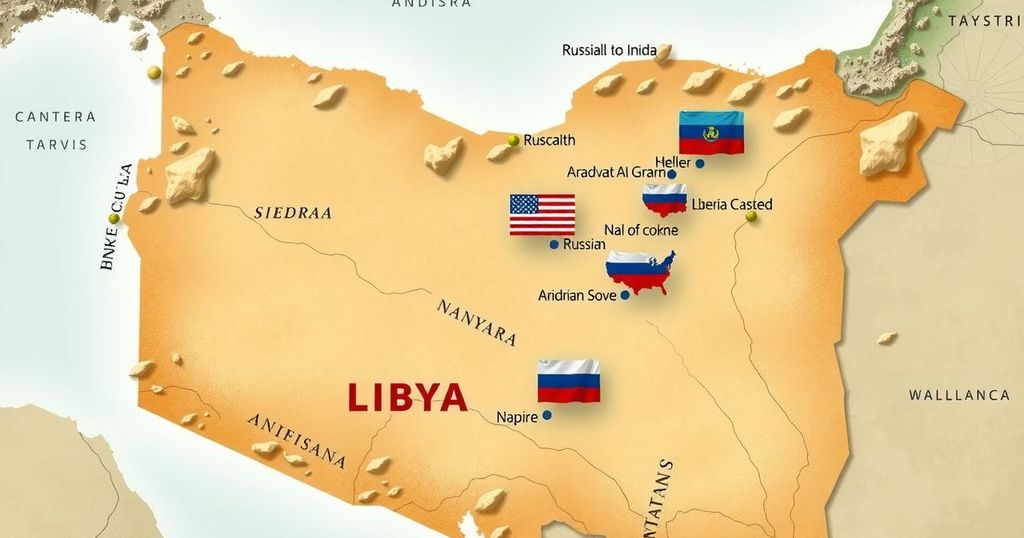Libya: A Strategic Arena for U.S.-Russia Rivalry Amidst Changing Politics

Amidst Donald Trump’s willingness to collaborate with Vladimir Putin, the U.S. faces ongoing competition with Russia in Libya. General Khalifa Haftar’s relationships with both superpowers complicate U.S. diplomatic initiatives as Russia increases its military presence. Observers remain divided on the potential for shifting allegiances among Libyan leaders.
In a recent geopolitical shift, Donald Trump has expressed a willingness to engage with Vladimir Putin while simultaneously exhibiting disdain for traditional American allies. Amidst this backdrop, Libya remains a focal point of strategic rivalry between the United States and Russia, perpetuating a Cold War atmosphere without signs of reconciliation.
The United States has recently deployed a B-52 bomber to Libya, part of efforts by U.S. generals to persuade local leadership to remove the increasing Russian military presence in the region. This outreach is particularly directed towards General Khalifa Haftar, who governs eastern Libya and facilitates Russian influence as they support regimes hostile to U.S. interests.
In February, Haftar and his sons visited Belarus, strengthening ties with Russia. As part of the Pentagon’s initiative, U.S. Africa Command conducted targeting exercises, welcoming Haftar’s personnel in an effort to establish a dialogue while showcasing U.S. military capabilities.
Although Haftar has expressed willingness to cooperate with the U.S., he continues to receive significant military support from Russia, complicating U.S. diplomatic efforts. Notably, Russia’s presence continues to grow, with the number of stationed troops at Brak al-Shati airbase rising from 300 to around 450 since November.
Experts express skepticism regarding Haftar’s potential shift away from Russia. While some believe that Haftar’s son, Saddam, is actively pursuing a relationship with the U.S., there is still ambiguity concerning the Trump administration’s willingness to engage. Observers suggest that the U.S. may allow Russia to maintain its foothold in Libya, given the current administration’s unorthodox approach toward Russia.
The ongoing geopolitical dynamics in Libya illustrate the complexities of U.S.-Russia relations, especially under the Trump administration. While efforts to engage local leaders like General Haftar are underway, significant challenges remain, particularly with the burgeoning Russian military presence. The involvement of Haftar’s son, Saddam, raises questions about future U.S. engagement, yet the current lack of policy direction from Washington casts doubt on any potential recalibration of relations. Thus, Libya remains a critical theater for U.S.-Russia competition.
Original Source: www.defensenews.com








